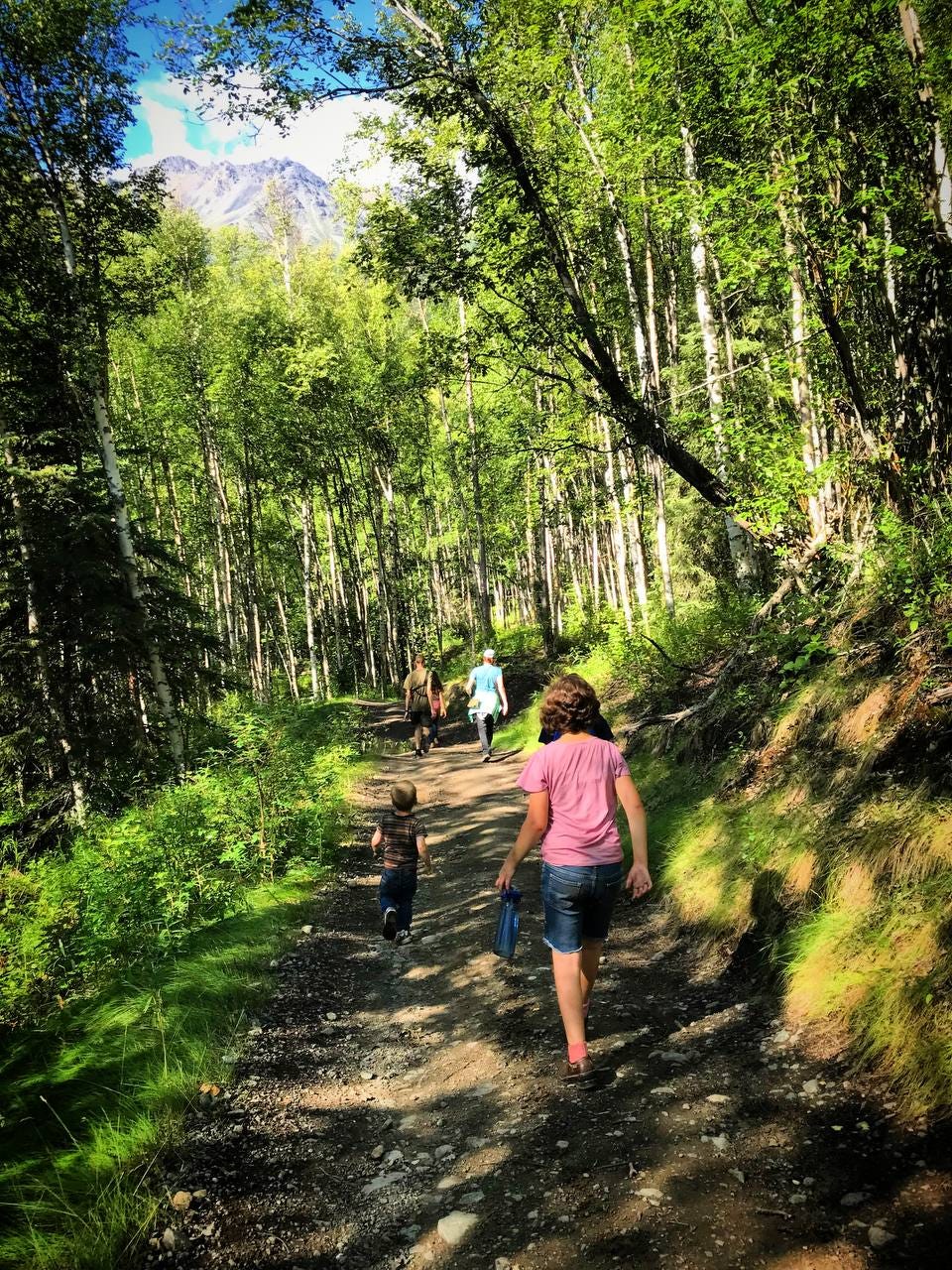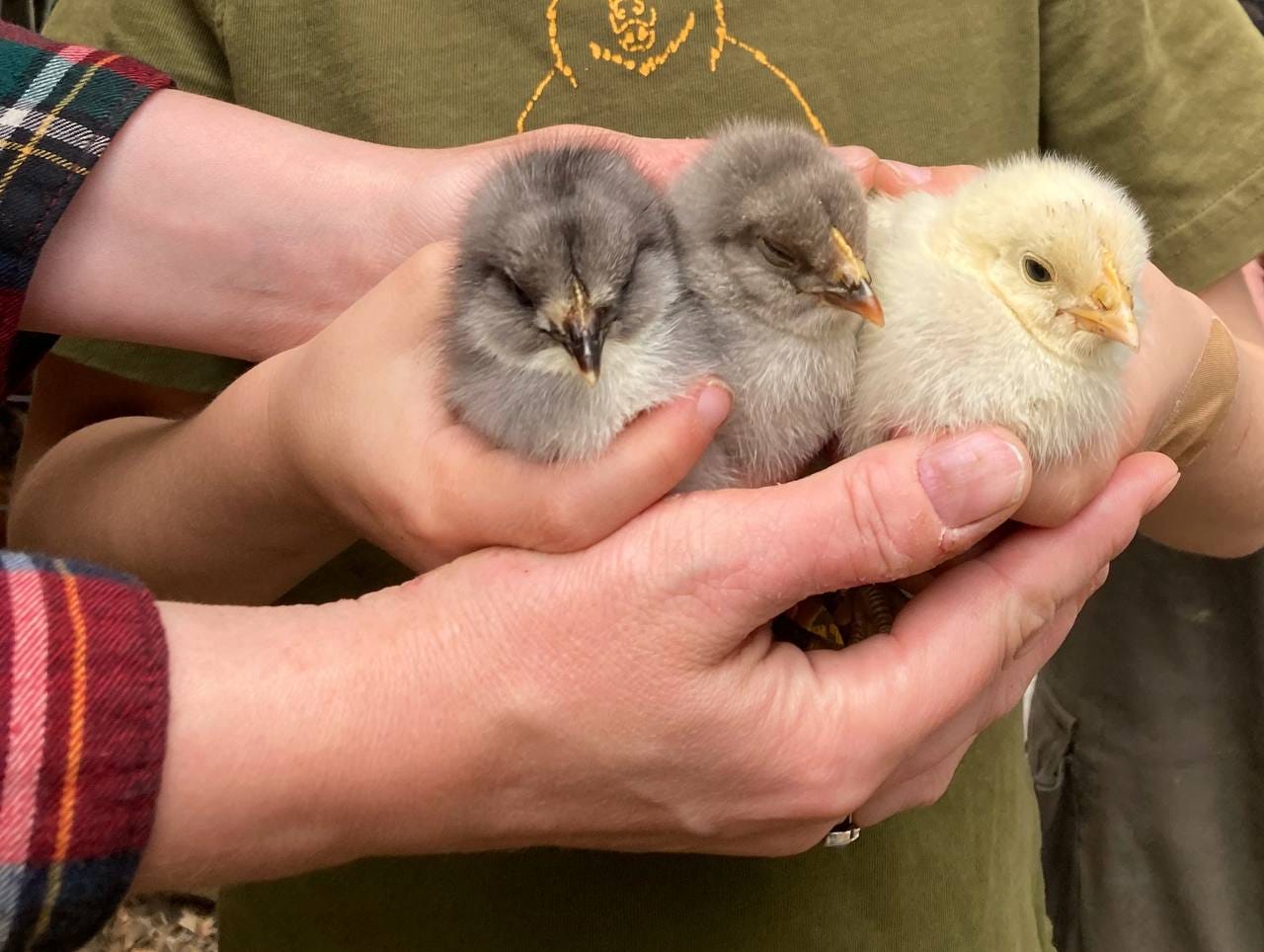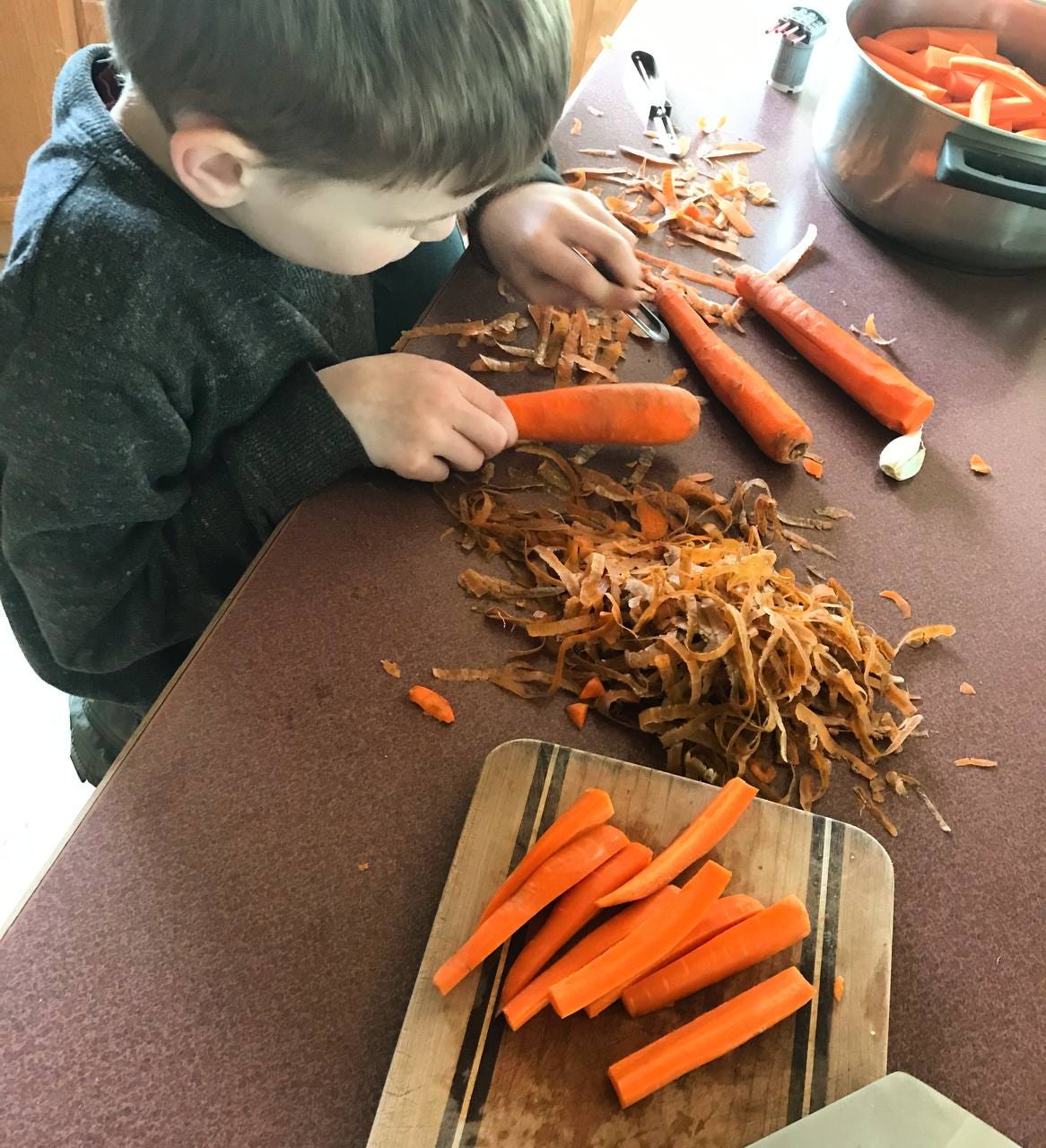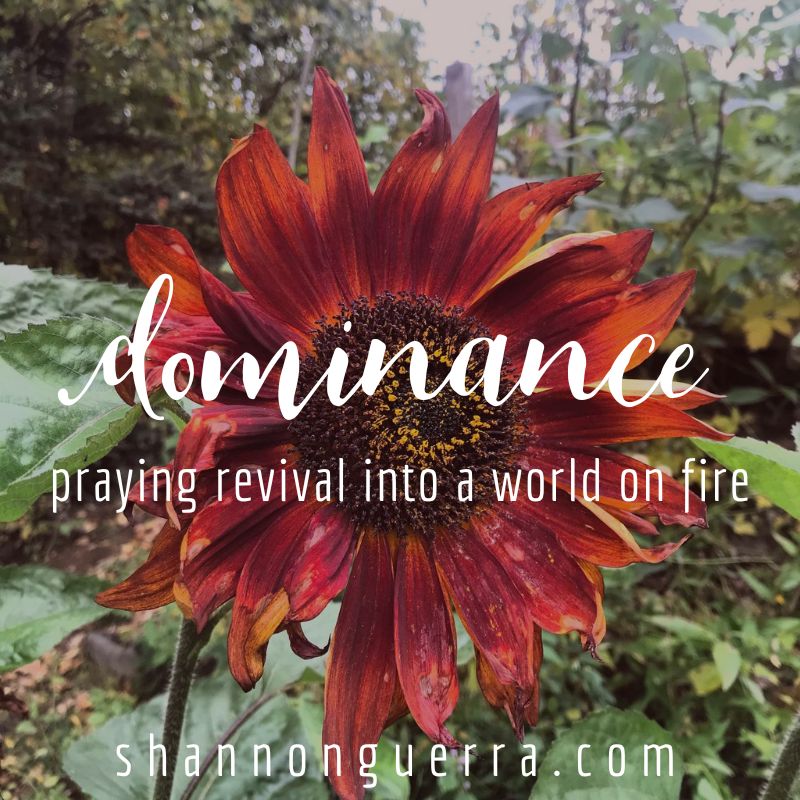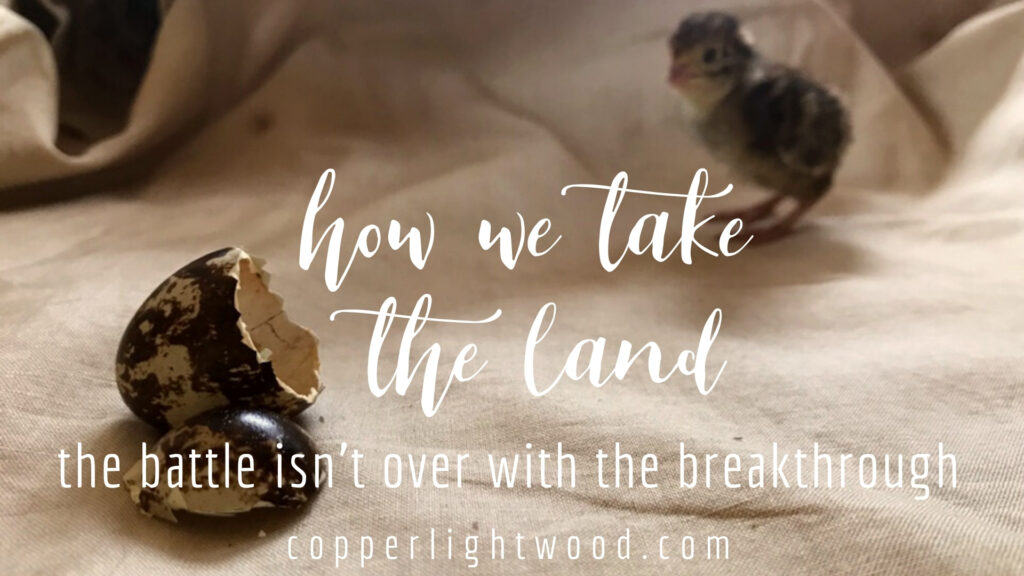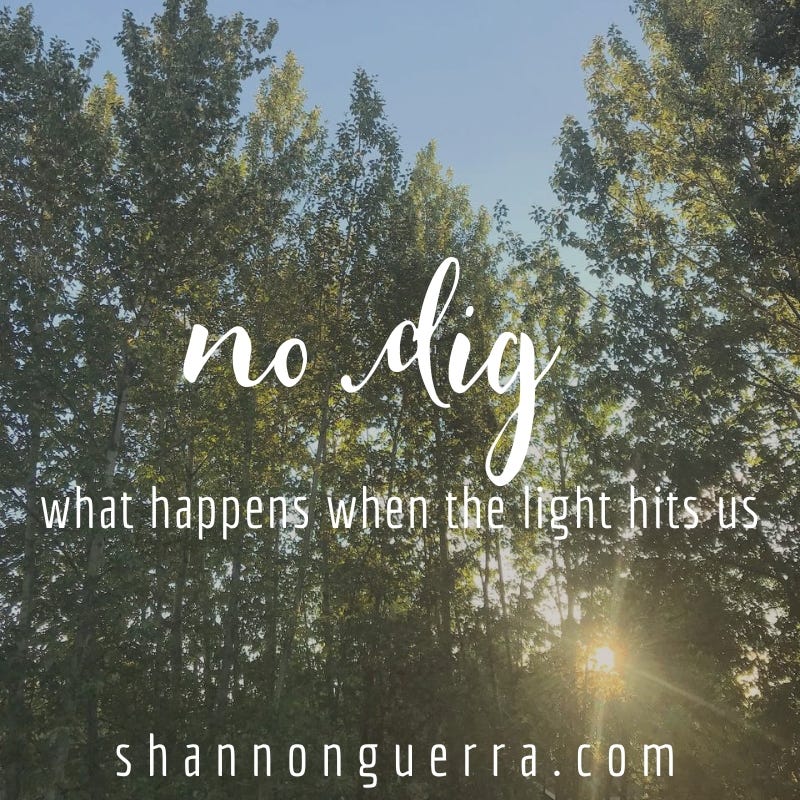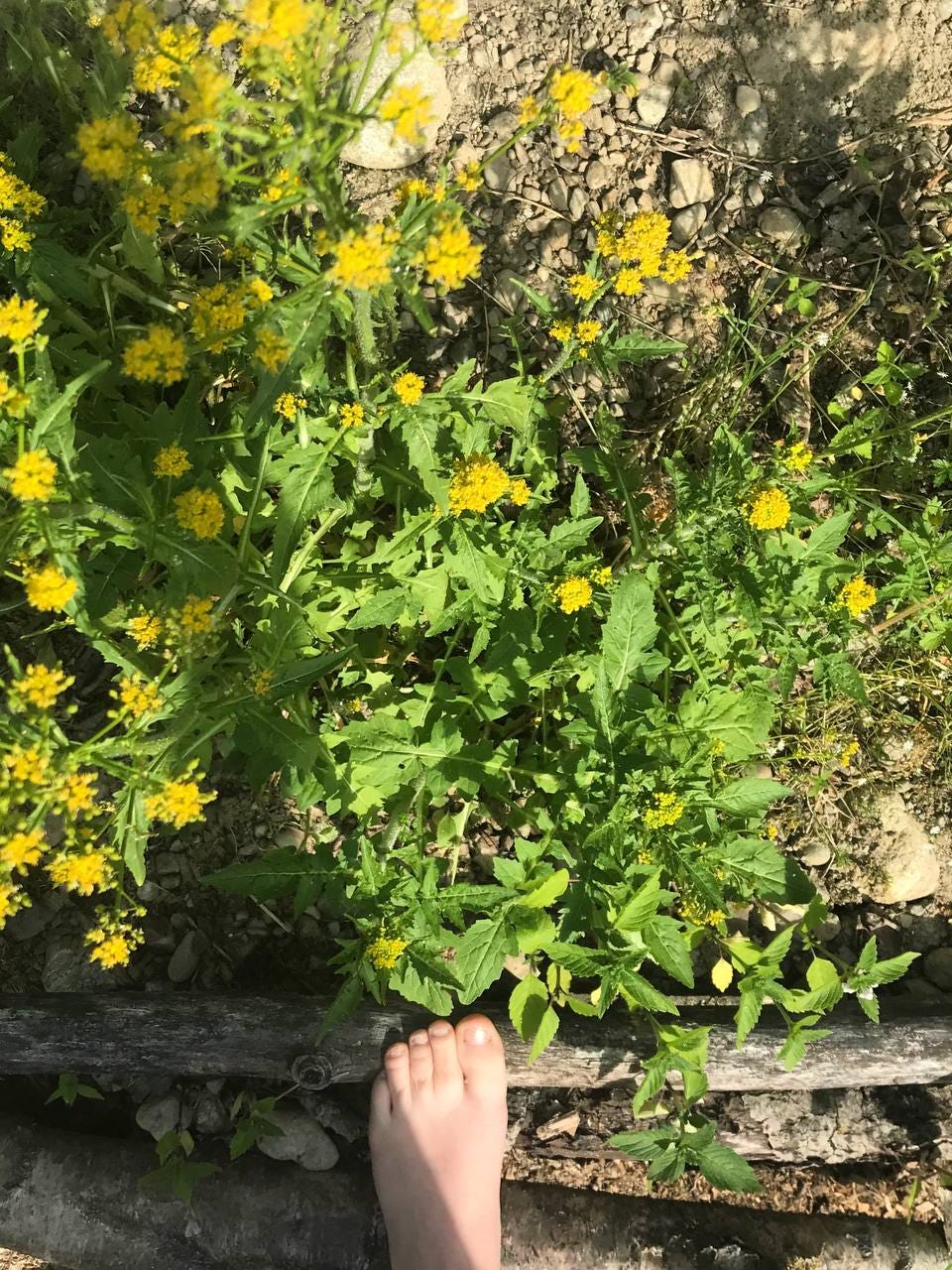After forty minutes of typing and deleting, I gave up and made lunch, discouraged. I threw a couple tacos together in the kitchen and came back upstairs, typed and deleted some more, and then shut the document.
I’ve learned by now that you can’t force a message out of thin air; it’s a balance between work and grace, and the Lord will reveal it when it’s time. So I moved to another project: sorting hundreds of pages of writings.

Copy a passage, paste to the new document. Highlight the original in red – or blue, or green, depending on the topic – scroll a little more, skim, repeat. I’m focused on the red words right now but I’ll get to the blue and green ones eventually, and once I find all the ones that ought to be red, I’ll categorize them into other documents to be rewritten.
Sometimes this is what writing a book looks like.
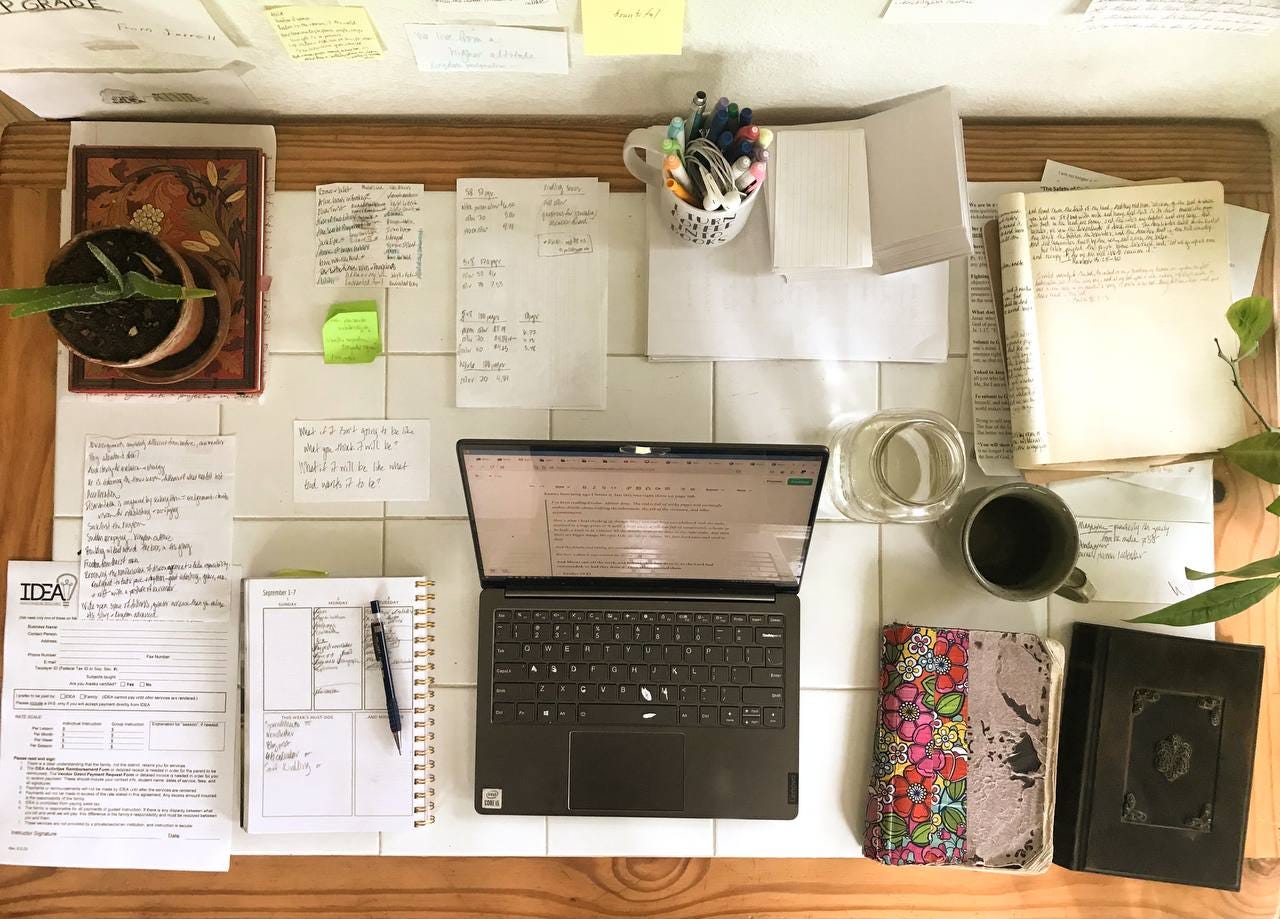
The initial work is already done, just like the garden out my window that’s already growing and producing, and the flowerbed that’s been blooming since late June. But if you want to reap a harvest you can’t stop there, because celery and peppers in the garden don’t automatically transform themselves into dinner any more than the 800,000 words I have in various files will turn themselves into a shelf full of books.
Projects like these have a million steps, and we can only do one small thing at a time. It does no good to wallow in the overwhelm or panic.
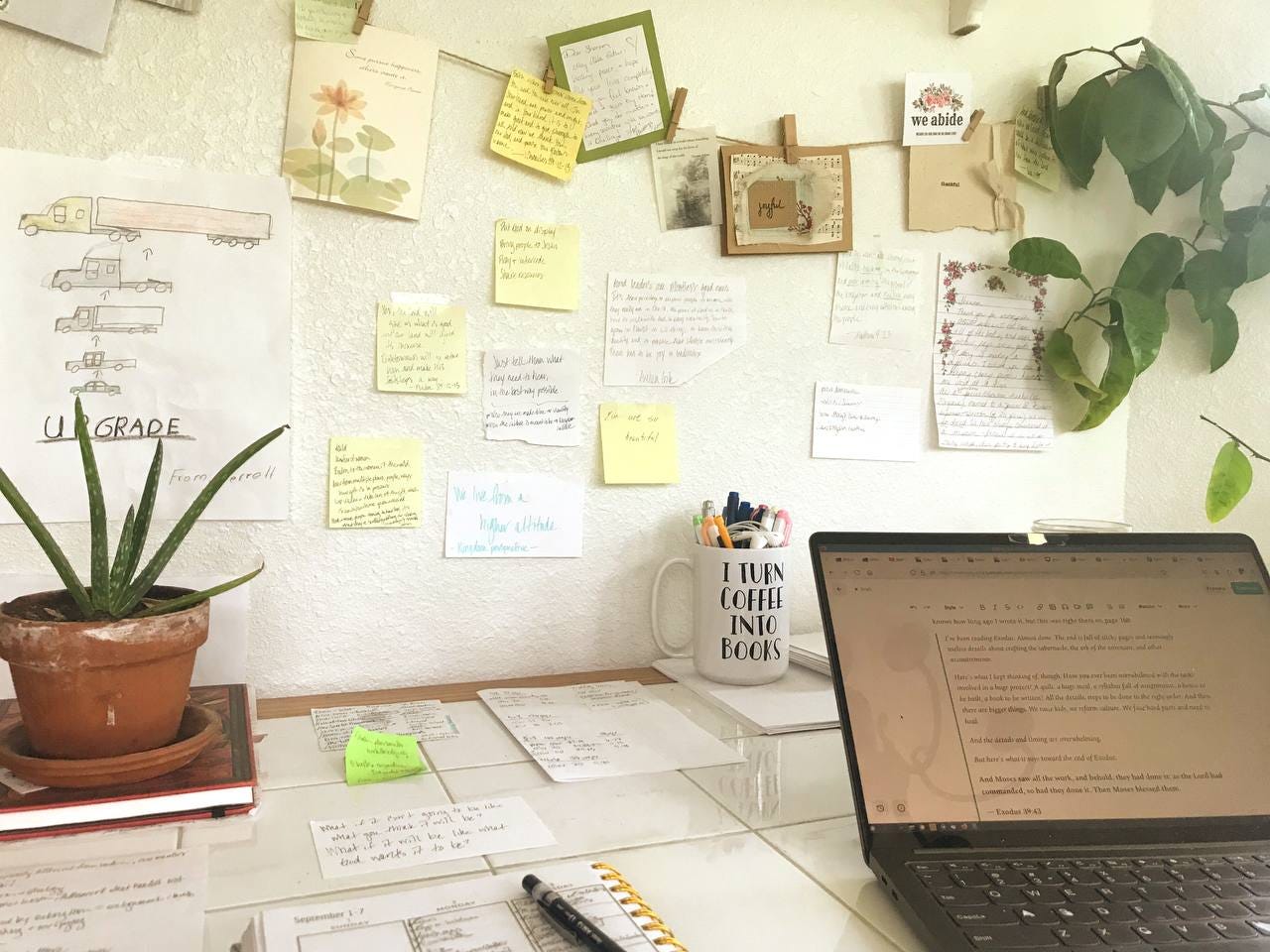
So I found my place again in the first document and skimmed – then stopped. Who knows how long ago I wrote it, but this was right there on page 168:
I’ve been reading Exodus. Almost done. The end is full of sticky pages and seemingly useless details about crafting the tabernacle, the ark of the covenant, and other accoutrements.
Here’s what I kept thinking of, though: Have you ever been overwhelmed with the tasks involved in a massive project? A quilt, a huge meal, a syllabus full of assignments, a house to be built, a book to be written? All the details, steps to be done in the right order. And then there are bigger things: We raise kids, we reform culture. We face hard pasts and need to heal.
And the details and timing are overwhelming.
But here’s what it says toward the end of Exodus:
And Moses saw all the work, and behold, they had done it; as the Lord had commanded, so had they done it. Then Moses blessed them.
— Exodus 39:43
People have paved the way in big projects before us, and God led them through. And He’s leading us, too.
Huh…right, I’m sure it was totally a coincidence.
But no, this too is the balance of work and grace – I wrote it forever ago, but it was the grace of God that gave it to me in the first place and then made me stumble on it again right when I needed it.
The day before, we’d spent an hour picking peas and came home with bags and bags of them, about 25 pounds. It took five of us another hour to shell them all into wide bowls as we crowded around the kitchen island. We ate some with dinner that night, and the next day I spent another forty minutes blanching and freezing the rest.
So much time, just for peas.
Just for a side dish for several meals.
But this is what provision and sustenance and our lives are made of: time, and a million tiny steps.
And also, grace. We didn’t plant the peas; a friend did.
Grace shows up in the things we didn’t work for and couldn’t have planned, like the violets that turned up as party crashers and took over my lettuce bed. They charmed me so much I didn’t even resent their invasion.
The violets’ existence is grace but making them useful is work, and every few days I go through the bed, clipping some to dry for tea while throwing others over the railing, littering our side yard with deadheaded violets.1 Not everything can be elevated to honorable use, of course; some things have to be composted.
And this is true of writings and other work, too – some are published and seen, and others are just destined to be humus. The bits of us poured into them break down to nourish other growth.
Has the potter no right over the clay, to make out of the same lump one vessel for honorable use and another for dishonorable use? What if God, desiring to show his wrath and to make known his power, has endured with much patience vessels of wrath prepared for destruction, in order to make known the riches of his glory for vessels of mercy, which he has prepared beforehand for glory—even us whom he has called, not from the Jews only but also from the Gentiles?
– Romans 9:21-24
In other homesteaderly endeavors, we usually have three containers of chicken and quail eggs on our counter at a time, and so far the worst casualty was when a friend’s baby grabbed the handle of one of the baskets and sent ten or so eggs to the floor in a messy, explosive demise. But considering that we keep unwashed eggs on one floor of the house and we store clean ones on another – and thus have to transport dozens at a time down a long stairwell at least twice a week – it’s amazing that that’s the worst that’s ever happened.
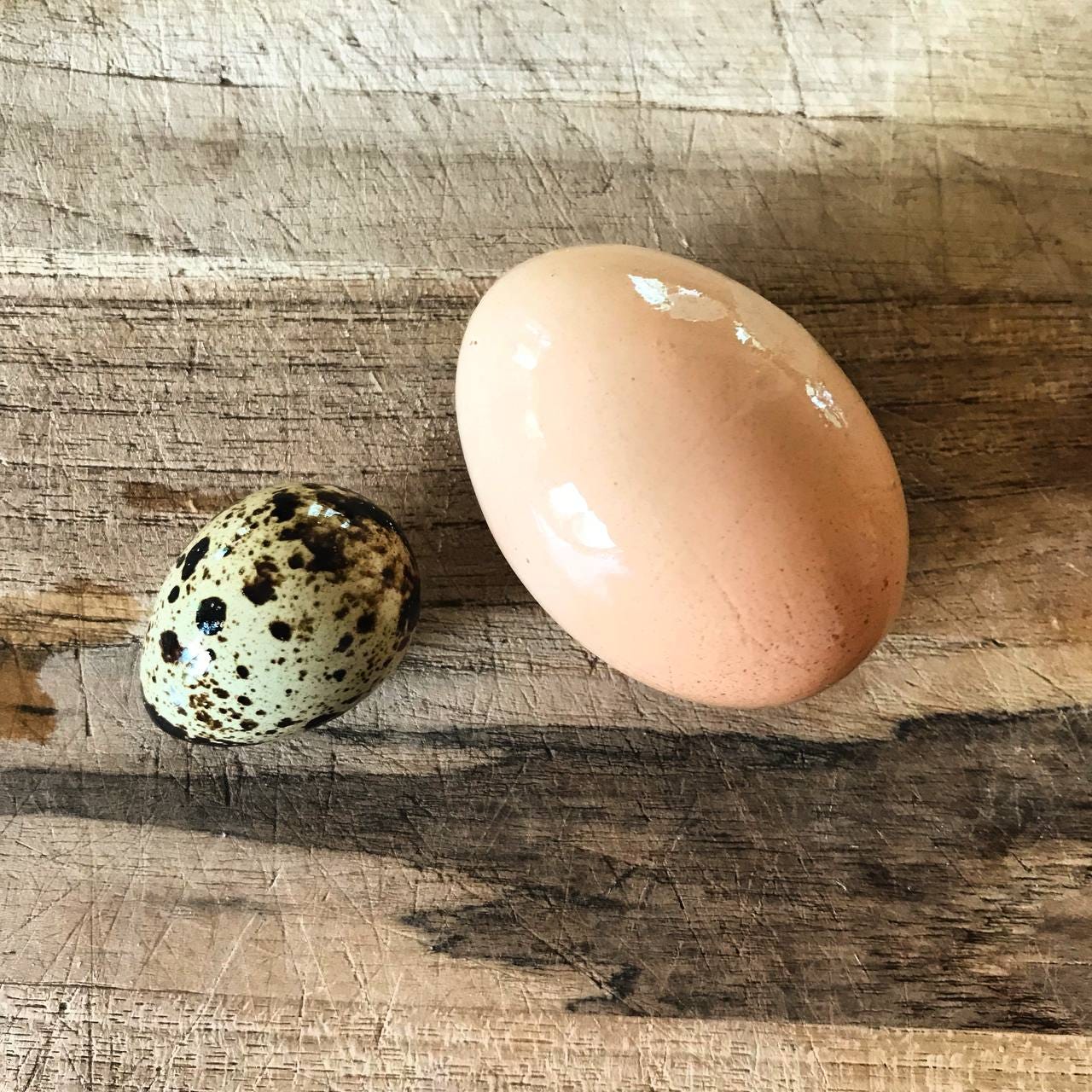
Every time I carry those eggs down the stairs, I pray. (Those stairs are probably the most interceded-for place in our house.) A few days ago I went down the stairs behind Kav, who was carrying a bucket of washed quail eggs while I had several crates of chicken eggs in a precariously stacked tower. I guess in your late forties, this is how some of us live on the edge. Every step is grace.
And I need that grace for every step, because I am 24 years into this parenting gig and I still struggle with getting kids bathed throughout the week, and their nails trimmed at frequent intervals, and making sure all the toilets are scrubbed before things start growing in there. It feels like I should be better at this by now or that we should have a routine or something, but life keeps changing and pulling the rug out from under our routines in process.
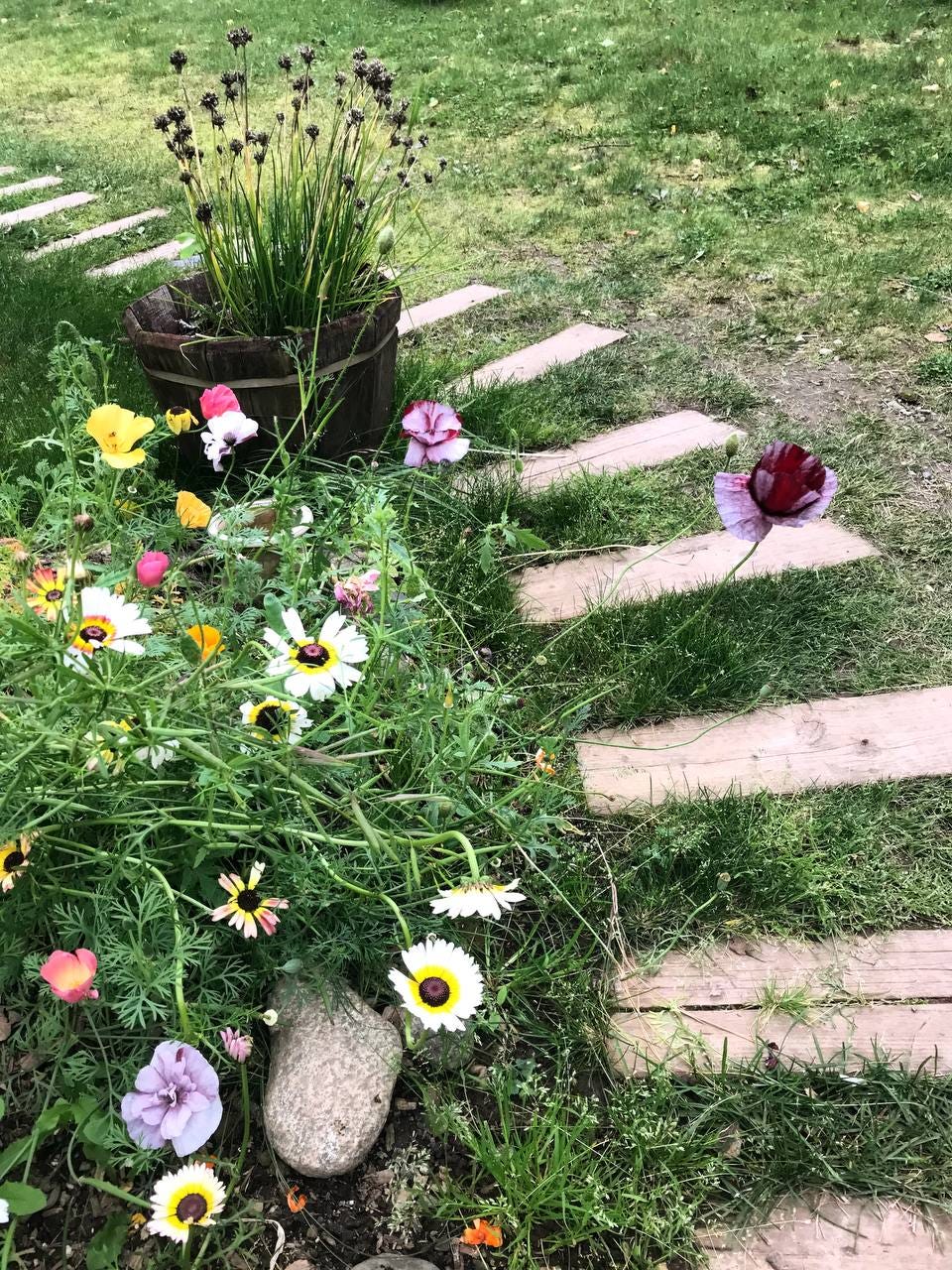
In these days that feel so full and uncertain and filled with alarming events and unknown implications, it is such a relief to know (or be reminded, because I forget) that it is not up to me to do everything. It is my job to show up and do my work, and that’s it. And (this is what I really need to hear – so listen, self) not everything is my work.
We don’t have to make everything, or learn everything, or produce everything, or figure everything out. We just need to show up and do our own work: at the desk, with the kids, in the garden, over the coffee with a friend, at the kitchen stove, on the phone with a client, in the meeting with other Kingdom builders.
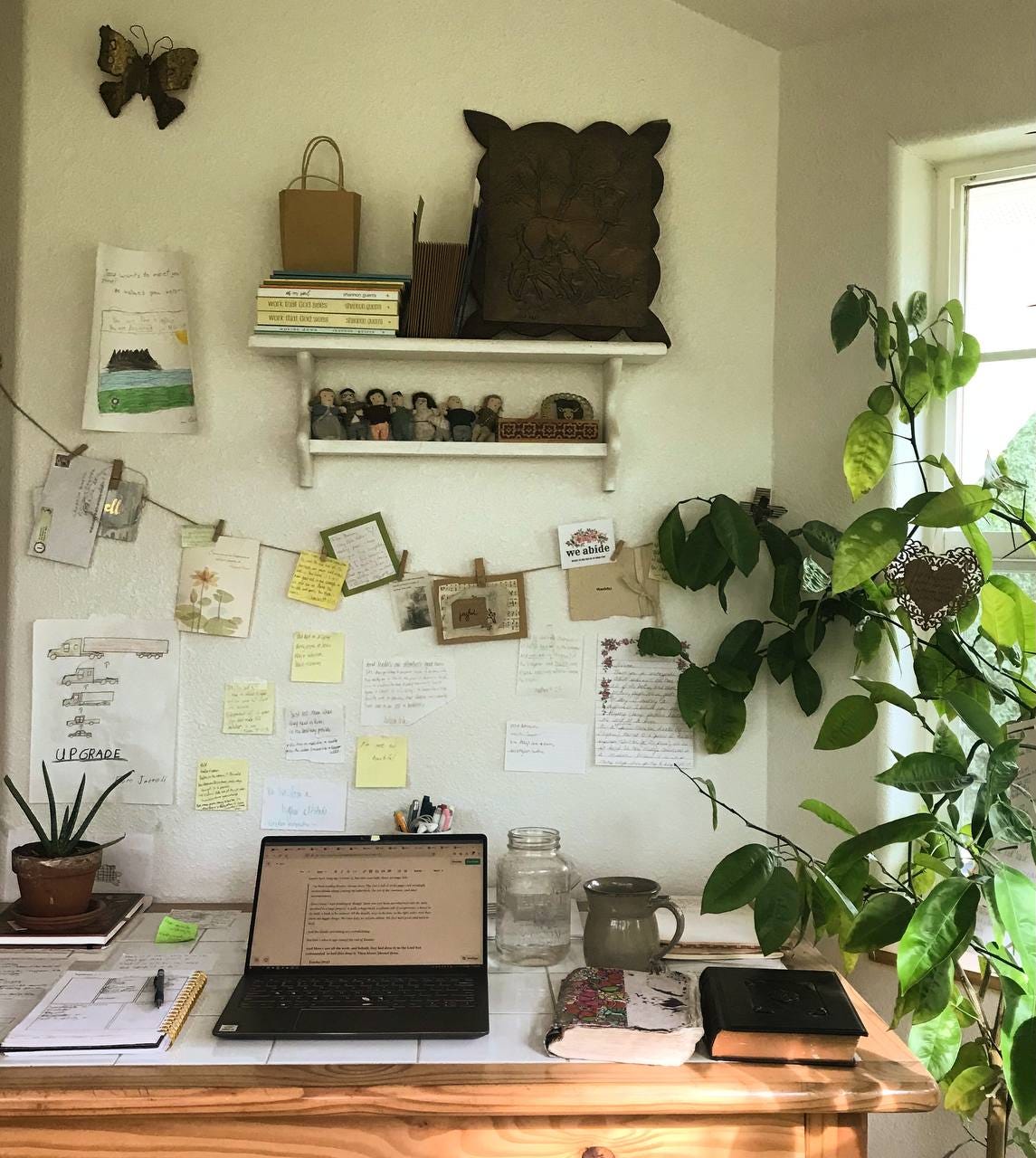
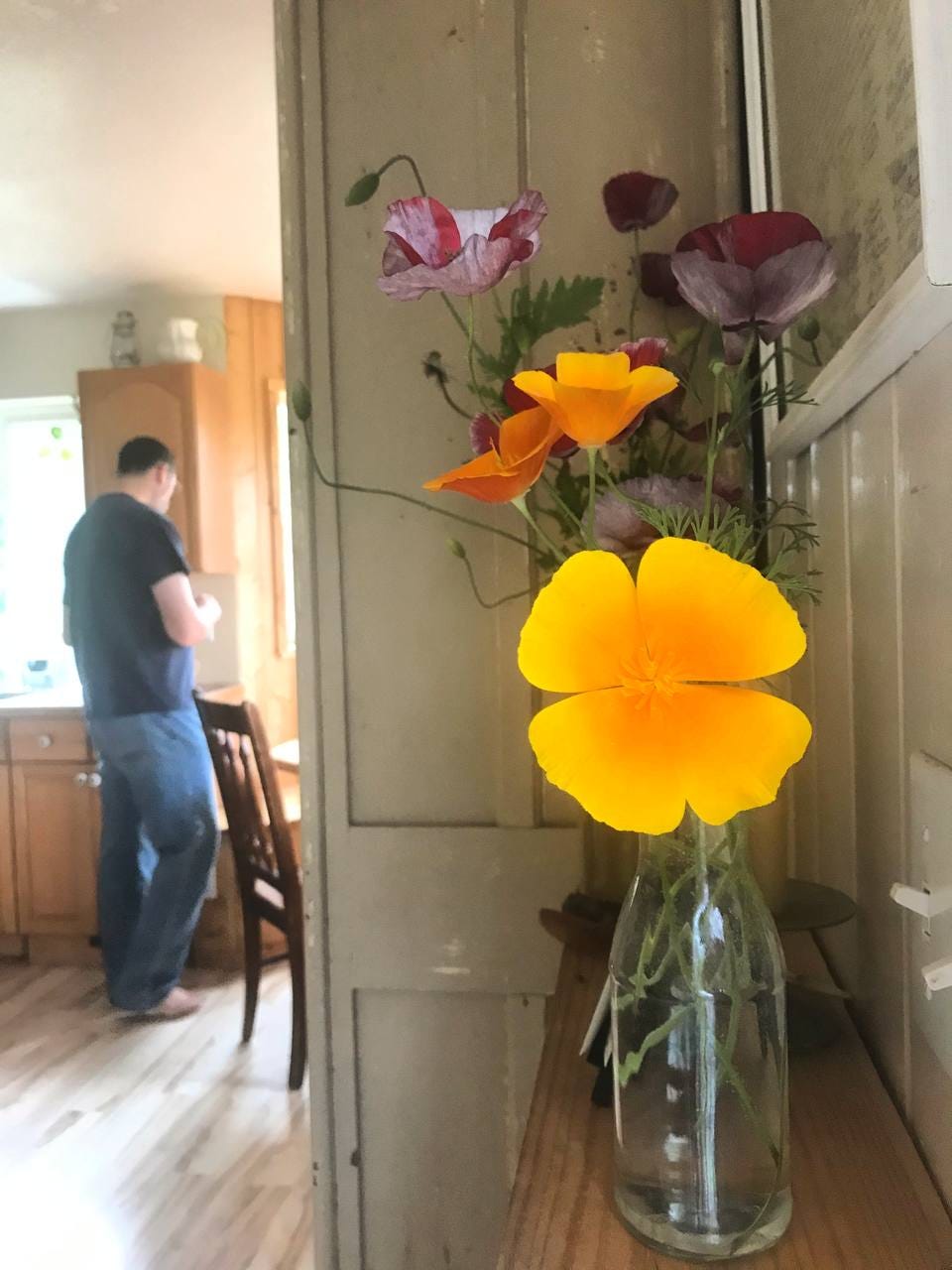
We show up and surrender our time, effort, and attention. And when we do, we find that He’s already there, already at work, doing the parts we could never dream of.
If we could force it all to happen, we’d take too much credit for it. So He lets us sit in a little frustration, feeling the tension of effort dance with our growing character as we practice things like trust, patience, steadfastness, fortitude, and faith. We need to know that every step is grace, that He meets us in both the risk and the tedious labor, rewarding those efforts with light, color, and clarity. Fulfillment.
As long as we keep going, there it is: We make a living, we reap a harvest, right out of thin air.
- If anyone’s looking for a great band name, Vin thinks “the deadheaded violets” is a winner. We’ll take 1%, thanks. ↩︎
Subscribe here for more posts like this, right to your inbox.


